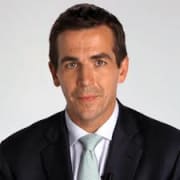Why the Aaron Rodgers Trade to the Jets Will Finally Get Done This Week

It’s NFL draft week, and you know where the Takeaways are starting … let’s go!
I think the Aaron Rodgers deal will get done, probably Thursday. As we’ve said before, this thing has been too close to being done, and there’s too much on the line for everyone involved, for it not to happen. And while there is breathing room to take the negotiation all the way into Friday night, my guess is Rodgers will be a Jet before then.
The reason? The Packers have shown a desire to tweak Rodgers’s contract a bit before they trade him and, by rule, if there is an adjustment to the contract, they’d have to wait until a day after that to execute the trade.
That means if Green Bay adjusts the contract itself Friday, they can’t trade him until Saturday. And while they could just have the Jets pick for them Friday, it would limit what they could do from a trade standpoint with that pick, giving the Packers real motivation to move Rodgers before the draft starts. Additionally, I’ve heard Green Bay’s been steadfast about getting a pick in this year’s draft, rather than just 2024 and ’25 picks.
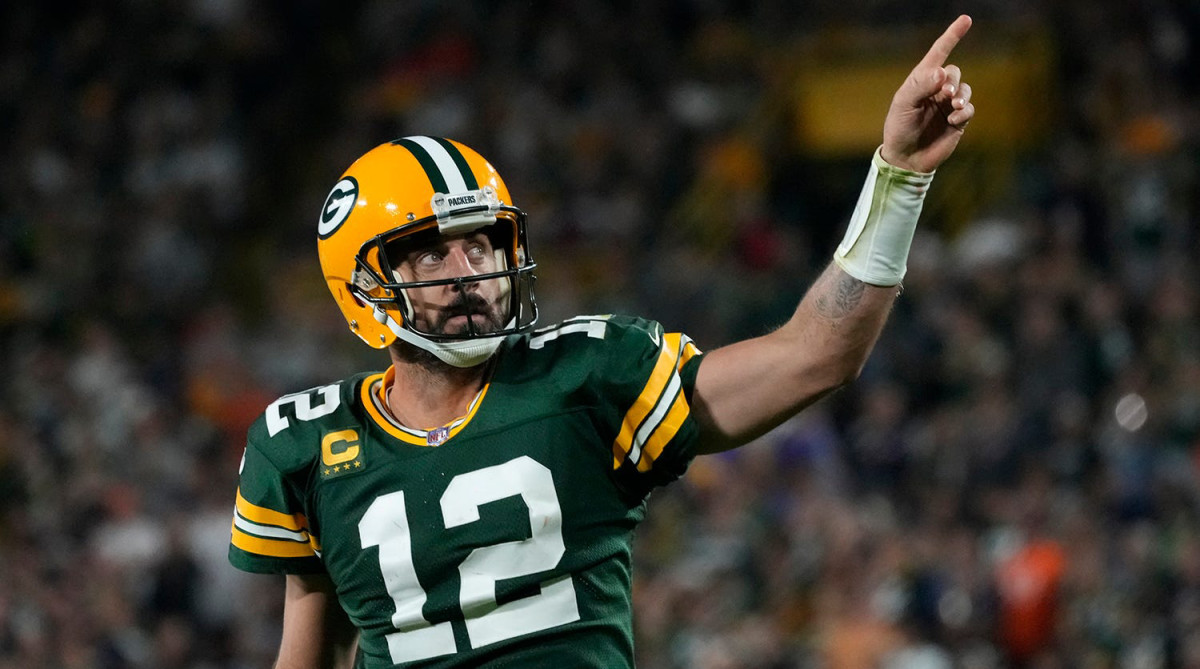
Given all that, I do feel comfortable saying that either the 42nd or 43rd pick will be part of the trade (which selection is another thing the Jets and Packers have haggled over), with, as we’ve said for a couple of weeks, what the 2024 pick looks like being what needs to be worked out in the coming days.
One idea was to make it a first-rounder conditional on the Jets’ making a certain stage of the playoffs (it’d be a second-rounder otherwise). Another was to have it be a hard first-rounder in 2024, with a second-rounder coming back to Jets in ’25 if Rodgers plays only a year. Also, at one point, a few weeks ago, the Packers sent the Jets a handful of acceptable trades. And GMs Joe Douglas and Brian Gutekunst have worked through some creative solutions, with everyone knowing how close the sides are to consummating a deal.
While we’re here, the Jets have stayed in contact with agent David Dunn—they still have permission to talk with him, though not Rodgers—so I don’t see any scenario where the contract is a hangup for either the quarterback or his new team.
In the end, and I’ve said this for a few weeks, I know a lot of this deal is going to come down to getting sign-off from a couple of key people—Jets owner Woody Johnson and Packers president Mark Murphy—who felt like they got worked a little by Brett Favre in the last blockbuster quarterback trade between these two teams 15 years ago.
But one more time: There’s too much on the line for everyone here for this not to happen. So midweek, I think we have a deal. If not, sooner.
The Lions’ gambling issue got the attention of other teams—and some took it as a warning shot from the league office. Detroit had four players suspended by the league for violations last week. Two, C.J. Moore and Quintez Cephus, were banned indefinitely, for at least the 2023 season for gambling on NFL games. Both were released by the team. Receivers Jameson Williams (the 12th pick in last year’s draft) and Stanley Berryhill were suspended six games for gambling at the team facility (though not on NFL games).
The tentacles of this reached elsewhere in the organization, as well, with ESPN reporting that several Lions staffers were fired for related gambling violations (I heard specifically that a strength coach and two equipment people were let go as part of the investigation).
So this isn’t a small number of people who were involved, and it sure sounds like (and was taken by others as) the NFL implicitly communicating to teams that the teams themselves are responsible for policing what happens in their facilities. More directly, players last week got copies of the league’s gambling policy, as well as a cheat sheet, that explains what is and isn’t O.K. in this new day of legalized sports betting.
We got a copy of both, with the cheat sheet detailing that …
• Players are “never” allowed to bet on NFL games; participate in illegal gambling; gamble at a team facility or while working remotely or traveling for an NFL game event; throw or fix an NFL game; influence the outcome of a game for gambling purposes; or fail to give your best effort (yes, that last one was on there, which is kind of funny).
• Players can’t enter or use a sportsbook during the NFL season.
• Players can visit a casino or track on their own personal time.
• Players can only use/disclose inside information as “specifically authorized and never for betting or other gambling-related purposes.
• Players are to avoid associating with professional sports gamblers and report any attempt at a bribe.
• Players can join a fantasy football league only if the prizes amount to no more than $250 and can “never” play daily fantasy if any prizes are awarded.
On top of that, the NFL requires players—every summer—to complete an online program on gambling, set up the same way as a corporate training program. And as part of the annual 90-minute NFL security meeting that’s staged for each team’s players in training camp, about 20 minutes are now devoted to the subject of gambling.
Now, with all that established, part of the problem for teams has been that it’s gotten so easy for players to gamble on their phones that they might not even think twice while they’re doing it, especially if they’d treated the gambling education the way so many other Americans treat their corporate training programs. And if players are doing it, it’s fair to guess they might be doing it with some people around them, the same way any of you might gamble with your coworkers at the office during the NFL season or NCAA tournaments.
So, essentially, this is the league putting the kibosh on all of it and putting it on the teams to monitor it within their facilities. Silly as it might seem that a guy can’t bet on his phone in the locker room, but he can in his car once he pulls away from the facility, the rules are the rules, as the Lions found out the hard way. And so you’d expect now that teams will be more vigilant enforcing them.
Which was probably the idea of coming down on Detroit as hard as the NFL did.
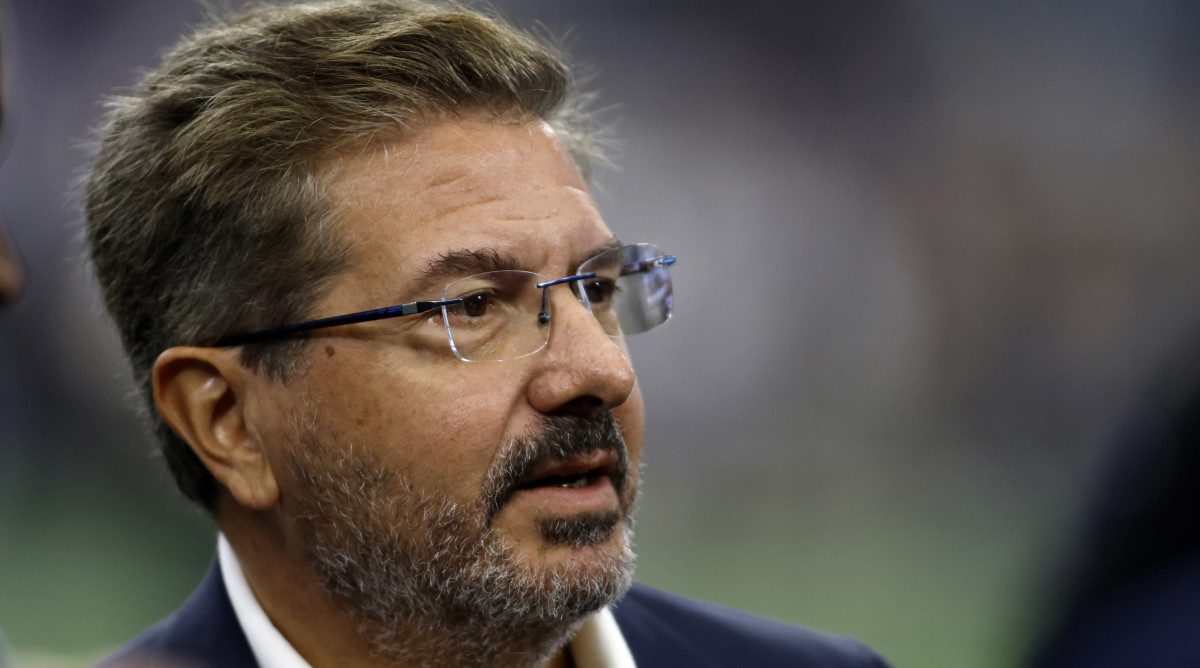
The Commanders sale isn’t final, but there is a timeline now for getting the deal done and getting Dan Snyder out of the NFL. Last week, I’m told, the NFL got an outline of the agreement by Snyder to sell the franchise to a group fronted by Sixers and Devils owner Josh Harris for $6.05 billion. And while Snyder hasn’t definitively said he’s going through with it, the pieces are in place to complete the sale within about a month.
First, the league must complete its examination and background work on the group, a process that will be fast-tracked since the league vetted Harris last year, when he was bidding on the Broncos. Part of that will be doing checks on Harris’s partner, Mitchell Rales—the founder of Danaher, a corporation with an enterprise value of close to a quarter trillion dollars. Rales is widely respected and expected to be approved through the process along with Magic Johnson. They are committed to buying smaller pieces of the team.
While that’s going on, the NFL’s finance committee is scheduled to meet in New York on May 10 as part of a set of committee meetings that week on Park Avenue. That meeting had been on the books before Snyder reached an agreement with Harris, but the expectation is that’s where Harris and his group will give the committee an in-depth presentation on the structure of the deal and show they have the financial resources needed.
Given the track record of Harris and Rales, it’s assumed that part is a formality, but it is important to the owners. There’s an assumption that the winning bidders will need to come up with billions more to build a new stadium in the D.C. area, especially in an economy in which getting public funding approved would be challenging.
Once approved by the finance committee, the owners will vote on the sale to Harris’s group. The hope, for now, is that the vote happens at the league’s spring meeting, which will be held at a hotel near the Vikings’ practice facility in Minnesota from May 22 to 24. And the deal should close within three or four business days of the vote.
Which means by June 1 a new era should be underway in D.C.
As for what to expect, there are two things that I think are relevant to know about the ownership group. First, Harris has learned a lot about running a team from Fanatics CEO Michael Rubin, his partner in ownership of the Sixers and Devils. And, second, Rales is, in the words of one owner, “a real guy,” who had the financial wherewithal to be the lead person in the ownership group but preferred to be in more of a background role. So know-how and resources for a new cast of owners won’t be a problem here.
The Eagles were smart to get Matt Patricia on board. And I know this won’t be seen as a popular opinion—not after the way things ended for Patricia in Detroit and not after how last year went with the Patriots’ ham-handed attempt at reinventing the wheel on hiring an offensive coordinator. But it is, as I see it, the truth.
Before his ill-fated time in Detroit, Patricia was Bill Belichick’s defensive coordinator for eight years (seven with the actual title), and coached in New England for six seasons before that. He won three Super Bowls there, two as the DC, and helped develop a raft of defensive cornerstones (Chandler Jones, Dont’a Hightower, Jamie Collins, Devin McCourty, Malcolm Butler, Logan Ryan), while integrating star veterans (Aqib Talib, Darrelle Revis) into the mix over the years. What’s more, most of those players really loved Patricia.
So now he’ll go back to being a defensive coach, which is where he earned that respect in the first place, and he’ll be a great resource for new Eagles DC Sean Desai, who at 40, is getting his second chance at being a coordinator after a single year doing it in Chicago.
It’ll also help Patricia reset his career. After he and Bob Quinn were fired in Detroit, Patricia chose to return to the Patriots, while Quinn chose not to, going to work for Andrew Berry in Cleveland instead. Quinn quickly established himself as an influential voice in the Browns’ organization, giving him the restart Patricia struggled to find with the Patriots and the kind Patricia will now get in Philly.
Now, it did take a little while for this to come to life. Patricia had talked with the Broncos and Rams about positions, and he was linked to the Eagles going all the way back to the Super Bowl. He’s been on a sort of sabbatical from the Patriots since, with his office and locker intact as he considered his options and while he talked with Eagles coach Nick Sirianni, who has upstate New York ties with Patricia and worked for Patricia’s former New England staff mates Scott Pioli, Charlie Weis and Brian Daboll in Kansas City.
And last week the decision came down, with the office Patricia inherited from Nick Caserio two years ago being handed over to New England director of player personnel Matt Groh, and Patricia moving on to a new stage in his career.
In Philly, Patricia will serve in an over-the-top sort of role on defense for Desai and help in a lot of different areas. My guess is the fit should be a good one, with Sirianni and Desai in particular benefiting the most from it.
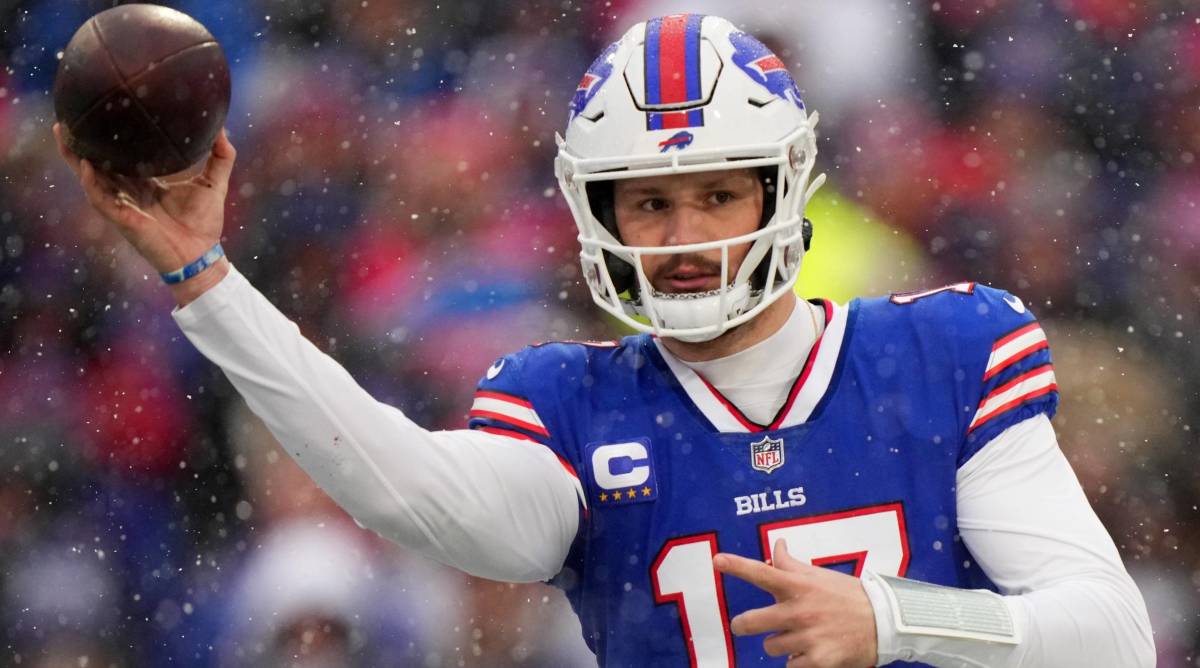
The Josh Allen comps you hear on quarterbacks are starting to get me a little annoyed. The Jalen Hurts ones, too, and that’s with the acknowledgment that in my overview of the 2023 quarterback class coming Tuesday, you’ll find a guy whose comp is, yup, Allen.
That said, here’s where I’m at on it …
Really, as I see it, Allen and Hurts give GMs and coaches cover to take chances on raw quarterbacks with skill sets that can be used creatively, which in turn buys them time to develop in the areas needed. Allen’s off-scheduling playmaking ability bought him time to tweak his mechanics and throwing efficiency, which made him more accurate. Hurts’s ability as a runner in an Oklahoma-style option game the Eagles fashioned for him bought him time to progress in throwing from the pocket in general and with anticipation in particular.
The truth, though, is those are difficult areas for any quarterback to improve, and, after I tweeted that fact, a quarterbacks coach who works with the elite guys from the time they’re teenagers reached out to echo the point I was making. And he mentioned the football adversity that both Allen and Hurts encountered on their way, which was part of their willingness, ability and relentless drive to keep developing.
Just think about it. Hurts started for two years for Alabama, guiding the Crimson Tide to consecutive CFP national title games, only to be benched at halftime of the second of those, watch his team win it all and then never start a game again at the school. He served as a backup at Alabama as a junior and resurfaced the year after at Oklahoma, starting there and playing well enough to get drafted in the second round. Allen, meanwhile, had to go the junior college route out of high school, then thrive at the first school that offered him, Wyoming.
Because those guys had to go through so much to get to the NFL, they were equipped to make it once they got there. And to think anyone else can is, well, unrealistic.
I detailed today how the top of the draft class is a little lacking. And one GM made this bold statement: “I think next year’s top five would be this year’s top five.” So I asked him who that top five would be, and then he took me through why he said what he said.
• His belief is that USC’s Caleb Williams and UNC’s Drake Maye would be the top two quarterbacks, if not the top two players, selected in this year’s class.
• He was adamant in saying Ohio State WR Marvin Harrison Jr. would be “by far” the best wideout in this year’s class.
• His feeling was Penn State left tackle Olu Fashanu would be right there with Ohio State’s Paris Johnson Jr. and Northwestern’s Peter Skoronski to be the first offensive lineman taken this year.
• He thought Alabama edge Dallas Turner was probably more gifted than his bookend, Will Anderson Jr., who will likely be the second or third pick in Thursday night’s first round of the draft.
So there are five names for all of you to keep an eye on in the fall.
We mentioned last week the decision the Chargers made to wait until after the draft to pursue an extension with Justin Herbert—and it’s hard not to wonder whether it’ll cost them a little bit. And it’s not that L.A. and Herbert’s camp aren’t on the same page on all this. They absolutely are. It’s just that numbers can get inflated quickly with quarterbacks, and that’s already happened to a degree, with Hurts getting his last week.
I’d consider the case of Kyler Murray from last year to be instructive. At the beginning of that offseason, there were just three quarterbacks making $40 million per year—Patrick Mahomes, Josh Allen and Dak Prescott. Murray demanded a new deal that February. By the time one was getting hammered out six months later, there were seven quarterbacks making $40 million or more, putting the Cardinals and Murray in a much different market environment to do their deal.
Murray wound up getting $46.1 million per year.
And, likewise, with Hurts at $51 million per year in new money and Joe Burrow likely to wait until after Herbert gets his deal, Herbert is well within his rights to ask for something closer to $55 million annually, depending on how far the Chargers are willing to go on structure and guarantees. Which is an awfully good place for Herbert to be in.
It’s also a tough spot for the Chargers to negotiate a deal (which, to be clear, is still a nice problem to have … which is having a quarterback like that on your roster).
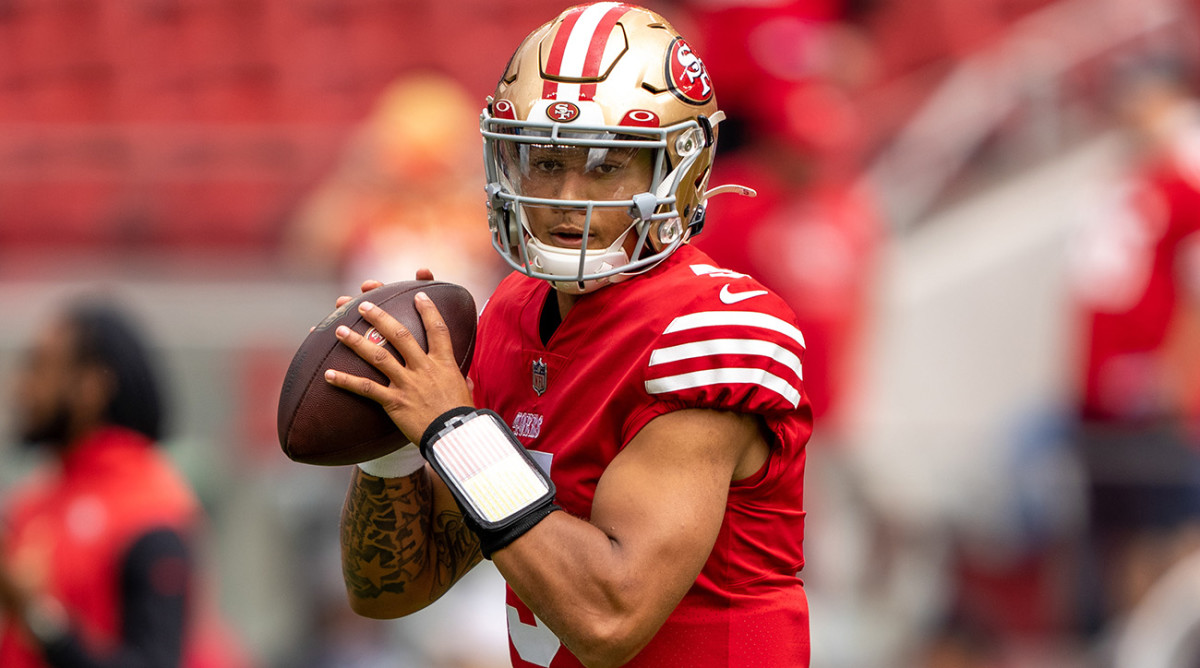
So the signal has been sent to call the 49ers if you’re interested in Trey Lance. And the activity of three teams—Texans, Titans and Vikings—should be telling. DeMeco Ryans is the coach in Houston, Ran Carthon is GM in Tennessee, and Kwesi Adofo-Mensah is GM in Minnesota. All three were in San Francisco over the past couple of years and all three have a need for a quarterback of the future.
If those three don’t draft quarterbacks Thursday or Friday, and don’t pursue Lance, then that’s not a great sign for where Lance’s career is headed, and other teams will take note of it.
I do feel for Lance, who, by all accounts, is a great person, really smart and a strong competitor. It’s not his fault COVID-19 took his final college season away, nor is it on him that injury robbed him of his chance to start last year in San Francisco. Nor is it really on the Niners, who have a championship roster ready to roll and don’t have the time to be taking lumps in the name of developing a single player.
All of that leaves everyone with a question: What happens to Lance? Of course, that the Niners would listen to trade offers with their starter Brock Purdy incapable of throwing right now isn’t a great sign for his future. We’ll see if the Texans, Titans and Vikings provide better offers later this week.
I’ve seen some of the data that NFLPA president JC Tretter is referencing on the grass vs. turf debate, and it definitely supports the idea that natural surfaces are safer. The set I saw showed a double-digit percentage difference in ACL, MCL, ankle and hamstring injuries on grass vs. turf. The simple fact is the NFL knows what it’s doing—they aren’t sending the players out there on turf because it’s safer. They’re doing it because it makes it easier for teams to cram every event under the sun into stadiums, with less maintenance.
And so, yeah, this is another thing that comes down to money.
Other teams could limit events in their stadiums and spend on their surface like the Packers. Or they could pay for a cutting-edge retractable system such as the one that Real Madrid has in its gutted-and-redone stadium in Spain. Instead, they’re in the situation they’re in, with even Southern cities such as Charlotte and Nashville tearing up grass fields to lay down turf, all in the name of extra concert dates, soccer matches and whatever else.
We’ll wrap this week, draft week, by paying tribute to Damar Hamlin. It’s awesome that he’s able to do what he wants to do less than four months after he collapsed on the field in Cincinnati. That those options of his included locking back in and trying to play football again is even better.
"It’s a roller coaster of emotions, honestly, of, you know, something you couldn’t dream of,” Hamlin told Buffalo reporters. “And some I’m trying to just focus on right foot in front of the left. I’m learning, going with the [fluidity of] emotions. It’s just best not worrying about trying to control too much of how you’re feeling. Just whatever you got that day, just meeting yourself wherever you’re at and then giving it from there."
All the best to the whole Hamlin family.
